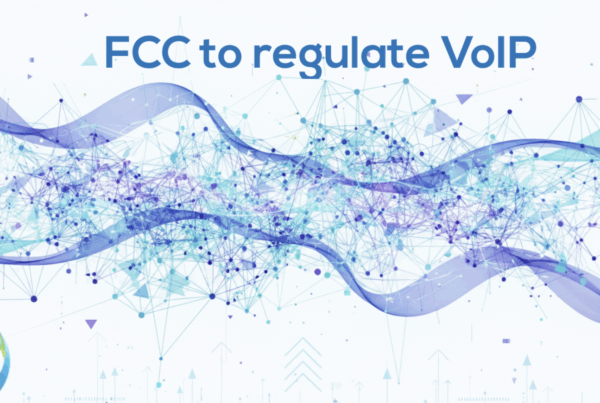A new study shows CMOs are planning $10M+ in annual GenAI investments with WhatsApp and RCS at the cntre of strategies, leaving SMS facing pressure to evolve. With rich, personalized experiences becoming standard, CPaaS providers must adapt quickly, focusing on ROI, trust, and innovation. Dario Betti explores how MEF Members can embrace GenAI, safeguard messaging integrity and guide the industry’s shift toward smarter, more secure communication.
A recent BCG study shows Chief Marketing Officers worldwide are more confident about generative AI (GenAI) than ever—83% report optimism in 2025, up from 74% in 2023. And 71% plan to invest over $10 million annually in GenAI over the next three years.

GenAI will mean a profound restructure on the way the companies think and operate marketing functions. The size of the investment expected by CMOs and the chances in the marketing processes. If you are working today for a large brand in marketing research or acquisition you might have had your role and team changed considerably already.
MEF members should pay attention: the same GenAI wave transforming marketing is reshaping A2P messaging—RCS Business Messaging and SMS, WhatsApp and Social Media business messaging —unlocking richer experiences, new risks, and fresh opportunities at the intersection of telco, fintech, and fraud prevention. It is time to consider next steps.
SMS has proven to be very resilient. SMS Simplicity cuts through noise: In a landscape saturated with rich, AI-driven content, a clear, concise text can feel authentic and trustworthy. ”
It is important to note that some challenge this ‘easy path forward.’ Academic have raises trust concerns in the use of GenAI. A recent study published in the Journal of Marketing Research, (from Zhu, Pan, and Fang) found GenAI outputs may be less trusted. This matters for messaging: trust is fragile in customer interactions.
GenAI’s Role in the Messaging Renaissance
GenAI, short for Generative Artificial Intelligence, is a type of AI that can create new content, such as text, images, audio, and video, based on existing data. It learns patterns and structures from historical data and then generates new data based on this similarities. Essentially, GenAI mimics human creativity by producing original content in response to a user request.
BCG reports that CMOs are moving beyond experimentation to scaled GenAI use cases, especially in immersive content, personalization, and agent-based workflows. Video generation, predictive analytics, and AI agents are now priority areas—marking a shift toward automation and scalable experiences.
Rich Messaging boosted by AI Messaging, yet not clearly embracing it
WhatsApp and RCS Business Messaging (A2P/P2A) might be the first messaging channels to receive a boost from the new rich media. The availability of cheap personalised multimedia content opens the importance of these channels in conversational commerce. The key impacts area will be:
- Interactive chatbots for balance inquiries or fraud alerts (P2A), offering context-aware reactivity.
- Personalization at scale—rich media, adaptive buttons, and micro-targeted offers like BCG’s “personalization wave.”
- Campaign Automation – setting up and launching campaigns can be complicated but processes are being automated through AI to reduce time and learning.
- Mobile AI agents, analogous to BCG’s agentic AI in marketing, but focused on utility: fraud screening, billing support, onboarding guidance
In theory these channels would get a huge boost by the availability of create and ingest rich and personalised content in the messaging flow. This should be a paradigm change in the customer experience. However, the uptake has not been as strong I would have expected This is a great opportunity for the industry, and a great potential innovation for platforms and CPaaS players.
WhatsApp: the strongest AI bet
WhatsApp Business is seen as the most advance platform of GenAi experimentation and features. However, the platform usually is commercially favouring customer support and payments over marketing use cases, especially in LATAM, India, and parts of Europe.
In 2024, Meta (parent company of WhatsApp) officially launched Meta AI assistants within WhatsApp Business API, enabling companies to embed generative AI chat agents directly into customer service and support chats. This lets businesses:
- Automate FAQs and onboarding flows using natural language GenAI bots.
- Offer 24/7 AI-powered customer assistance, reducing human intervention for repetitive queries.
- Personalise marketing campaigns with context-aware, generative content in chats.
- Meta will also launch its Marketing Messages Lite (‘MM Lite’) service from July 1st to offer marketers a better experience
Meta is now rolling out AI tools that allow businesses to auto-generate message templates for promotions, updates, and transactional alerts within WhatsApp’s A2P framework—subject to approval via WhatsApp’s template verification system.
Brands using WhatsApp Business API can integrate AI recommendation systems to dynamically generate product offers, payment reminders, and cart abandonment messages tailored to the individual recipient—helping convert A2P traffic into sales.
There are also advancements for messaging users (i.e. the person to person messaging side). A new AI chatbot directly integrated into the WhatsApp chat list allows users to ask questions, generate images, or get recommendations—powered by Meta’s Llama 3 model. This is like ChatGPT but built into the app. Users can generate AI images and stickers from text prompts—bringing lightweight GenAI creativity features into everyday chat use. AI-driven message summarisation and smart reply suggestions are being tested to improve chat productivity and efficiency.
RCS: starting up
We have not yet seen the wide GenAI usage in A2P messaging across image video for RCS. It is true that RCS Business Messaging is being launched now, and the focus is sometimes on availability or Simple Messaging rather than AI. There might be another explanation too: RCS is operator-managed channel and has seen little standardised tools been created for campaigns (the standard relies on CPaaS as the customer API/software bespoke solutions). New solutions might emerge, but the market is fragmented among the different vendors.
GenAI might be a key differentiation for the enterprise facing CPaaS players offering multichannel GenAI solutions.
Other OTT & Social Media: User Feature Focus
Many OTT platforms are playing with AI, but we cannot report massive roll out of the technology. It might be driven by roadmap and strategic issues, but it is surprising to see the channel not be using more of the GenAI craze/hype for visibility:
Telegram: is emerging and favoured for privacy and bot development. Telegram has announced AI-powered features for user services, like smart summaries, AI-assisted search, and chat suggestions, but these are end-user facing enhancements, not designed for structured business messaging or campaigns. Unlike WhatsApp or RCS, Telegram does not provide an operator-level or enterprise-level A2P messaging platform with sender verification, message templates, or controlled brand messaging via GenAI. A2P via Telegram is unofficial, fragmented, and lacks regulatory oversight. Telegram has a large ecosystem of third-party AI-powered bots, some using GenAI models (like ChatGPT integrations). These are typically P2A (Person-to-Application), user-initiated interactions rather than formal enterprise A2P services. Recently Telegram entered into an agreement with xAI (part of Elon Musk’s X group now) to use their AI model in the chat and sharing premium revenues.
WeChat: The leader in China for all-in-one messaging and see as the global trailblazer, as of mid-2025, WeChat (Tencent) has actively integrated AI-powered tools into its platform, including generative AI for customer service chatbots and personalisation in mini-programs. However, there is no publicly confirmed deployment of GenAI specifically for A2P (Application-to-Person) business messaging in the same structured way as RCS Business Messaging (RBM) or WhatsApp Business API.
iMessage: very popular in the U.S.A, and where iPhone/iOS has great penetration, it offers limited enterprise messaging compared to other solutions
SMS: Simplicity or Obsolescence?
As GenAI and RCS drive richer, more interactive messaging experiences, it raises a critical question: Is the era of the simple, single-text SMS marketing message over? It seems that SMS has to change (again) and evolve. Complementarity to other messaging channels and integration into text GenAI / Customer Experience flows will be required.
The industry is clearly moving towards rich content: CMOs and brands now favour dynamic, interactive messaging (as seen in RCS and OTT apps). User experience is evolving, with consumers increasingly expecting verified sender IDs, logos, and visual trust cues—features SMS cannot deliver.
However, SMS has proven to be very resilient. SMS Simplicity cuts through noise: In a landscape saturated with rich, AI-driven content, a clear, concise text can feel authentic and trustworthy. Global reach advantage: SMS remains the only truly universal channel, essential in emerging markets. Low cost and low complexity: For urgent alerts (e.g., OTPs, fraud warnings), SMS is unmatched. SMS will likely continue to be used, but perhaps more as a fall-back mechanism for newer rich services now coming to markets in A2P.
Final Take: An opportunity for the Messaging Landscape
It is a time of change, and it is a time for players in the A2P messaging industry to change and take control of the opportunities that are emerging. Not surprisingly, in response to its survey BCG recommends scaling GenAI with a strong measurement foundation and talent strategy. The CPaaS and Messaging Platform industry should follow the advice. Clear efficiency and ROI case will be needed after the large investment influx – the winners will be the driver of quality not hype. But also, the internal talent required to move towards GenAI and Agentic AI (the decision-making type of AI) are leap forward in the Rich Media industry. Catch this trend and you will be well place to dominate the future.
The “single text message” may not disappear—but its dominance is under threat. Simple SMS will remain essential for speed, notifications and reach. But for brand building and customer engagement, RCS (powered by AI) and OTT channels like WhatsApp and WeChat and even social media based apps are becoming the new frontier.
MEF can guide this dual evolution – ensuring simplicity and richness coexist where they best serve users – while helping members navigate the risks and opportunities. Join MEF’s Messaging Channels Interest Group.





